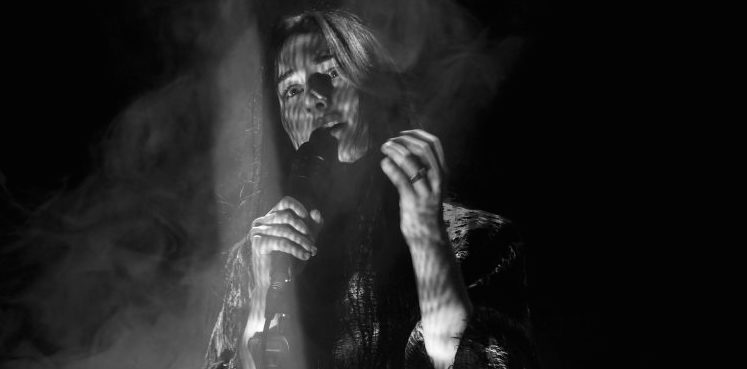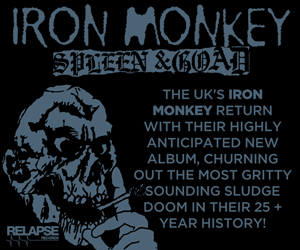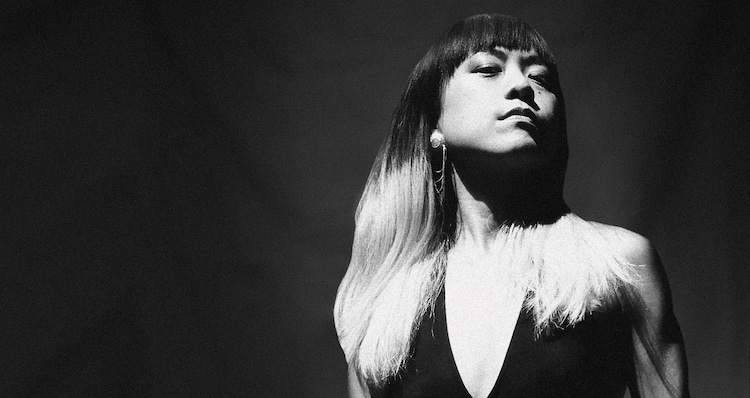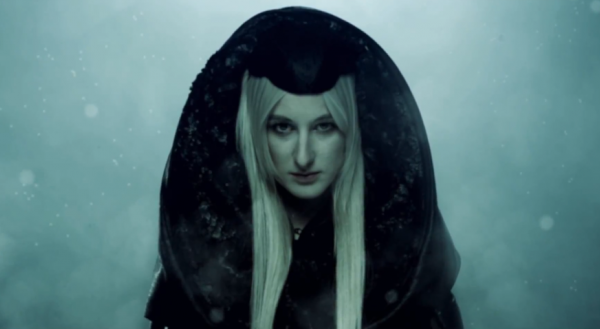For over a decade, Nika Roza Danilova has been recording music as Zola Jesus. She’s been on Sacred Bones Records for most of that time, and Okovi marks her reunion with the label. With Okovi, Zola Jesus has crafted a profound meditation on loss and reconciliation that stands tall alongside the major works of its genre. The album speaks of tragedy with great wisdom and clarity. Its songs plumb dark depths, but they reflect light as well.
I talked to Zola Jesus about Okovi, her life and music at Locomotive Club in Bologna (Italy).
What does Okovi mean and why did you choose this title for you new album?
Okovi means “shackles” in Russian, Slovenian, Ukrainian and a bunch of different Slavic languages. My ancestry is Slavic, so I thought to use it to unite that part of myself. I also just liked that the word “shackles” as okovi is shared by so many different countries that are even at war sometimes. It just reflected the true nature of the idea of shackles to me: we all are chained to something; no matter where we’re from or what language we speak, really.
The song “Doma” talks about the meaning of home. As an artist, is it important to you to belong somewhere?
Yeah, I think it’s important for me to feel that what I’m doing has a home somewhere, as well as myself.
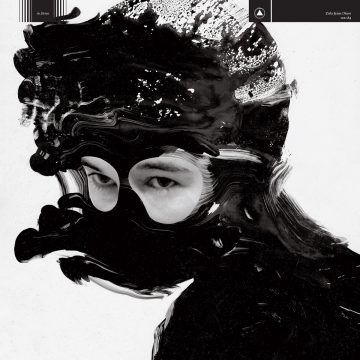
Where do you feel at home?
I feel at home in the woods. Nature is very important to me. I need to feel free.
Do you think that your Eastern European roots inspire your music?
I do think so to some extent. A lot of Eastern European folk music is really inspiring to me, like Bulgarian choirs and village songs and music from Ukraine.
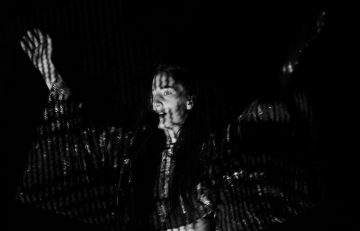
Okovi talks about difficult and sensitive topics. Can you please tell us more about it?
Yeah… where do I start? The record was written during a very difficult period of my life. I was going through my own depression, and as I was starting to get a little bit better and healthier, people around me were struggling with their own demons. A person very close to me attempted suicide twice, another was struggling with terminal cancer, and another was just going through their own depression. So, I just kind of felt this pathetic chaos around me.
Where did you find the strength to write about something so personal?
It’s just why I write. It’s my means to connect to the world and myself, and to understand myself better.
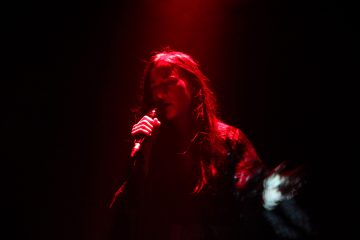
The media doesn’t talk much about depression or suicide. Do you think there is more we can do to help people come out of a depression?
I think removing the stigma of depression, or mental illness, is really important, because some people are nervous about wanting to admit to their struggles. Or they don’t understand it completely and so they don’t want to reach out. So I think awareness is really important. That’s the only way more people will be able to get help.
Do you think writing and working on Okovi and talking about your situation somehow helped you?
It was very cathartic for me. It forced me to work through some things that I didn’t know I was ready to work through and just to kind of make sense of the chaos.
Okovi is dark and mystical, but the concept of hope is hidden in every song. Do you think that there is still some hope in all this darkness?
Yeah, I think so. I think it doesn’t matter what struggles we’re going through, there’s always another side. And it’s really all about how you work through it, because difficulty or sadness and depression are just one shade of life. There are so many other shades of life that should not be forgotten.
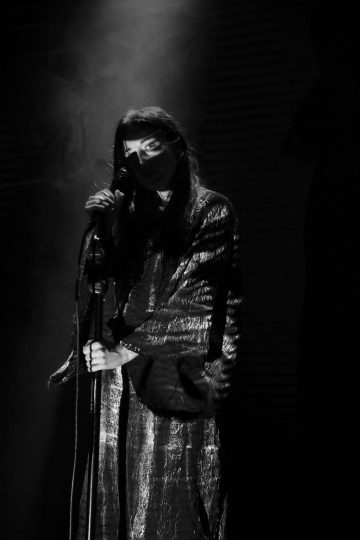
Death has always been either an inspiration or something to fear. What’s your vision about it?
Death scares me. I feel like I’m not in a place right now where I’m living in such a way that if I died tomorrow, it would be OK. I still feel like I have a lot of work to do. And so that makes me very uncomfortable, but I’m trying to work through that.
I read that the song “Veka” was inspired by Anna Akhmatova’s poem “Is this century worse than those before?” Is that true?
Yeah, I actually read her poem at the beginning of “Veka”.
Do you have a favorite poem or song that you feel deeply connected to and why?
Well, that’s one of them. I just love the sentiment of the poem and I love Anna Akhmatova. I think about the poem a lot.
When did you first read the poem?
A couple of years ago I bought a book of Anna Akhmatova’s poems. I was flipping through it and I stumbled across it, and it just really stuck with me.
Is there a song that also inspires you?
There’s not just one song; that’s hard. I work with songs, so it’s hard to pick one song that inspires me. I can talk about movies or literature, but when it comes to music, it’s a little bit more nebulous.

Do you think you’ve grown as an artist since your first album?
Oh yeah, tremendously. In the beginning, my writing and production was really crude. It might have been more or less pure, but I was still trying to understand what my voice was as an artist and what I wanted to say. Throughout making all these albums I’ve really established my voice and identity as an artist. And with every album I make I feel like I get closer to that.
What’s different about Okovi compared to your last album, Taiga?
So much. Taiga was extroverted. It was like me trying to make something that fit into the world already. I felt it to be very grandiose, sort of this ambition to make a big album, well produced, trying to sing really well. And with Okovi there was just so much swirling around my life at the time that I couldn’t focus on what I wanted the album to sound like. It’s just a collection of songs I was writing while going through all that trauma. So it was a very different intent.
Do you think that Okovi is deeper than Taiga?
Yeah, I think that Okovi is more personal, intimate and maybe profound, whereas with Taiga, even though I deeply love that album, I was focused on different things at the time.
Your music mixes violin, cellos and guitars with electronic music. Why this choice?
I like string instruments because they are timeless. And I like the sound: they can really hold notes, sustain for long periods and create these big, thick blankets of sound. And then the guitar is a new addition. My coproducer and live band mate, Alex DeGroot—who’s touring with me—plays guitar in Okovi and I really liked his style of playing. I felt like it was more atmospheric and lush and less about riffing.
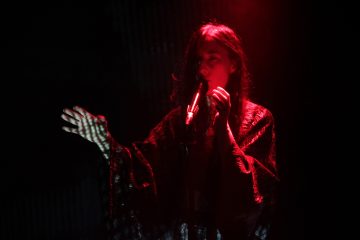
What do you think about the female music scene these days?
I think it’s great. Almost all my favorite music is made by women right now.
Can you mention an artist?
The new Fever Ray album is great. The new Chelsea Wolfe album is great… there’s just so much.
What band have you been listening to lately?
Today, I actually just listened to the new Frank Ocean album for the first time. I listened to it like three times. So that’s probably not what you were expecting to hear, but yeah, I’m really into it.
Could you please give some advice to any young female musicians or any bands that want to play personal music or write intimate lyrics?
Just do it, and don’t be afraid of who’s going to hear you or what you’re going to say. Don’t be afraid of yourself or the world. Just do it, and trust yourself.
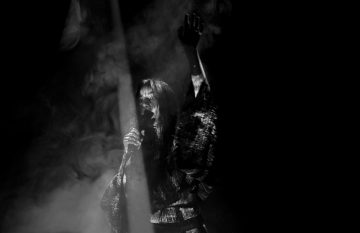
Photos: Marika Z.
Thanks to DNA Concerti

